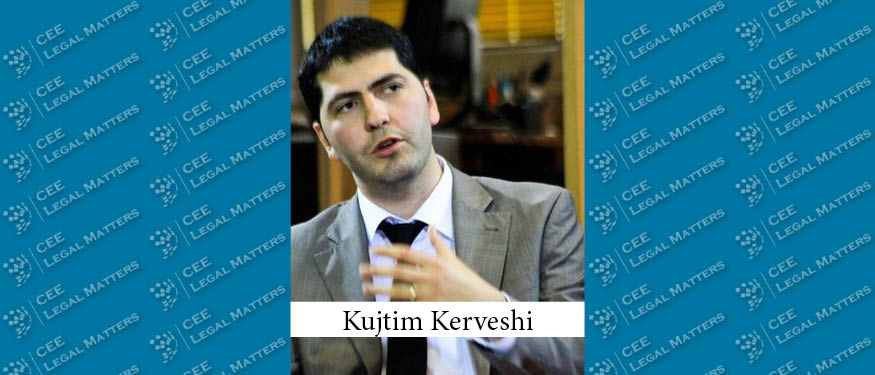Despite high political aims and a comfortable single-party majority in Parliament, the current Government of the Republic of Kosovo has been surprisingly slow on legislative activity, according to Kerveshi & Partners Partner Kujtim Kerveshi. “They could do what they want but are not doing much.”
Following the February 2021 election, the new Government has been in power for seven months. “They have a major backing in Parliament, they are just one political party, and they had big plans and lofty promises, so it’s very surprising that they’ve not been more productive in reaching those goals,” Kerveshi begins. He says this has been “one of the slowest periods in Kosovo’s history, in terms of legislative activity.”
He goes further, saying that even the older, advanced-stage proposed legislative changes – planned by the former government – were frozen: “one major thing that was planned to be changed was the process for vetting judges and prosecutors. We’ve had no updates on that and no concrete steps were taken.” He says he was one of the independent experts on the working group discussing the vetting process: “Since February 2020, we worked a number of months into the pandemic. Then the Government changed and we disagreed on some counts with the new one, so the group was reorganized. But seven months on, there is no work being done on that project, and no strategy has been announced.” He says these legal uncertainties undermine Kosovo's judiciary: “This brings some uncertainties – with the process not legally tangible – so the process itself becomes untrusted. As judges and prosecutors feel uncertain in their careers, there is a slowing down of the judicial process that could lead to a deadlock situation. And that uncertainty would then be extended to every professional field connected with the justice sector.”
He mentions a couple of things the Government could do to restore legislative faith: “the first is obviously making visible progress on the vetting process. The second would be the new Commercial Court Law – where the plan is to build up the Commercial Court as an entity separate from the main court in Pristina, thus enabling cases to be tried faster than before. This would definitely increase trust between business and judiciary.”
Kerveshi says the economy is making a recovery. He mentions some COVID-19 prevention measures are coming back, many of them affecting both families and business, with kindergartens shutting down, restaurants only serving outside, and a 10 p.m. curfew. Yet the economy “is bouncing back, partly due to the increased prices of everything, but mostly because people are working hard and there is hope for things improving.” He’s not optimistic about the strategy for state support of the most affected economic sectors: “there are COVID-19-related measures affecting businesses negatively, but we see no certain plan to offer government support.”
He does mention two unsurprising winners. The first is the construction sector. "It is in overdrive, even though everyone is complaining about prices – you see new buildings popping up every week. And this level of activity is bleeding into other sectors as well. Real estate overall is registering solid growth. It is the biggest factor in the economy today,” and while he mentions there is some activity on energy, mines, and minerals, he says the second winner is retail. “Shopping has never slowed down, even during the lockdown. And it’s happening both online and in person. Many of our clients worked on new online applications and platforms, and they need help on compliance, quality assurance, intellectual property, data protection – as a result, our technology business has been growing steadily.”
Kerveshi says innovative law firms offering services through in-house platforms (rather than face-to-face meetings) are around the corner. “Let’s face it, the pandemic has changed the world. People will keep finding faster and more innovative ways to do business. Online has changed our work, our lives, and I don’t think it’s over,” he concludes.
















